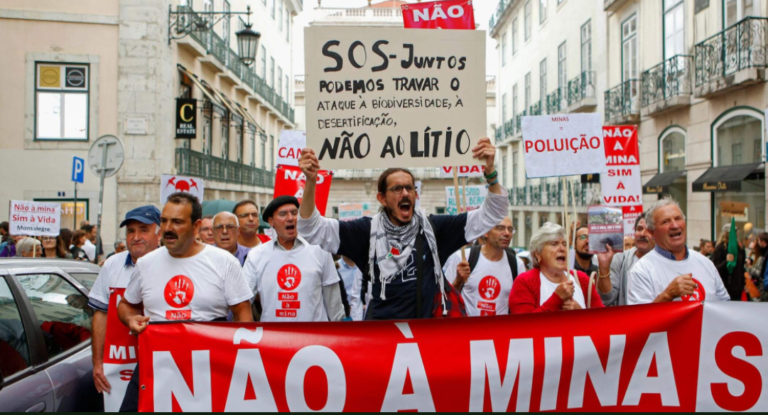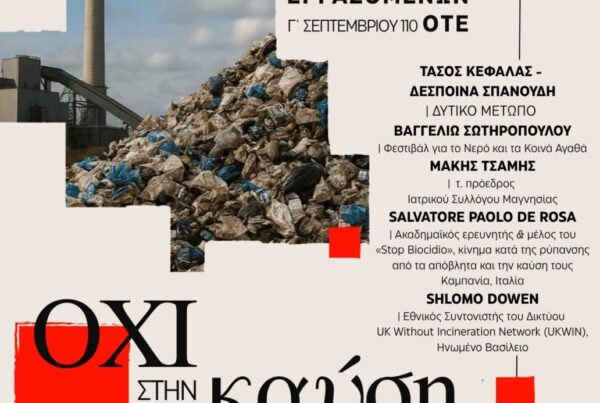Following the publication of the European Commission’s communications on Critical Raw Materials on Friday 4th September, XXX undersigned civil society organisations and academics write to to express our deep concerns and urge you to realign strategies on raw materials with the interests of the planet and communities.This includes ensuring action is taken to reduce absolute EU resource consumption, that communities’ Right to Say No to mining projects is respected, and that exploitation of third countries is ended.We are concerned with the overall narrative of the Action Plan where “diversified and undistorted access to global markets for raw materials” is central. The consequences for the environment and communities of this huge increase in metal and mineral mining is not clearly laid out – yet we know from experience and evidence that more mining leads to more biodiversity loss, more contaminated air, soil and water, lack of access to arable land and freshwater, displacement and eroded livelihoods, health impacts and more conflict.
Paradoxically, the expansion of mining to meet growing demands for renewable energy and other industrial transitions in the EU and beyond threatens the efficacy of global action to address the climate emergency.Therefore, we urge you to:
Make absolute EU resource use reduction a priority
We welcome the acknowledgement in the Action Plan of the EU’s “enormous appetite for resources” and resulting pressures, and that “the underlying problem….needs to be addressed by reducing and reusing materials before recycling them”. However, in the ten actions that will be taken forward, there is no commitment to action on reducing absolute resource use, and thus the quantity of critical raw materials required. Although necessary, actions to increase recycling and secondary sourcing can only meet a small amount of the EU’s demand in metals and minerals if the EU’s consumption continues to expand and grow at its current rate.
We need cross-cutting policy action across multiple fields including industry, climate and energy, transport and circular economy to reduce absolute EU resource consumption. This includes setting reduction targets for EU material footprint and absolute energy demand, and sectoral legislative plans for production and consumption systems that ensure our economies stay within ecological limits.
Respect EU communities’ Right to Say No to mining projects
A main aim of the Action Plan is to increase sourcing of critical raw materials within the EU. We are greatly concerned that local community voices are not being heard in their opposition to mining. Europe already faces more than 500 local environmental conflicts and at least 59 of them are around extraction of mineral ores. The Plan does not mention how local communities will be involved in the decision-making process – it seems there is simply a push for social acceptance of mining in the EU without ensuring democratic processes on the local level and a “Right to Say No”.
The Right to Say No goes beyond current requirements and discredited concepts such as Social License to Operate, which merely consult “stakeholders” on a future that has been predetermined before they get to the negotiating table. What is needed is a legally-binding Right to Say No mechanism at national level, mandated by the EU, in order to effectively redress the imbalances of power and knowledge asymmetries that exist between states and mining corporations on the one hand, and communities on the other. This mechanism must explicitly include communities’ right to veto unwanted projects prior to project approval and licensing.
Ensure correct application and enforcement of EU environmental law by Member States
There is extensive evidence of systemic non-compliance in relation to mining operators across EU Member States. The Commission must adequately address breaches of EU law in the mining sector using the tools at its disposal, particularly regarding those cases that have already been lodged by communities through direct complaints, petitions to the European Parliament or Parliamentary questions.
End exploitation of third countries, particularly in the Global South, and effectively protect human rights
The Plan acknowledges that “future demand of primary critical raw materials will continue to be largely met by imports also in the medium to long term” – thus the EU will continue to exploit third countries for our overconsumption. This is a matter of global justice: it is morally and ethically irresponsible that the EU continues and even expands the resource grab, especially from the Global South and from EU enlargement countries, leaving huge environmental and social burdens. The Commission insists on sustainable and responsible mining practices and transparency. However, evidence shows that even global leaders in environmental standards have trouble keeping their commitments6. There needs to be a mandatory human rights due diligence law for the EU.
The Plan also refers to securing “a diversified and sustainable supply of critical raw materials, including through undistorted trade and investment conditions”. The current EU trade policy is solely aimed at liberalising the raw materials sector with little regard to human rights, the environment and the ability of countries in the Global South to develop their own raw materials sector. Trade agreements should include concrete provisions to minimise the human rights and environmental impacts of raw materials extraction and strengthen the rights of affected communities.
New frontiers for mining
Finally, we are also concerned about the new frontiers mining is being pushed into, under “diversification and security of supply”. The Commission is for instance promoting and financially supporting the development of deep sea mining. While this is not mentioned in the Action Plan, we are concerned about this push of mining towards such highly vulnerable ecosystems. There needs to be clarification on actions the Commission will take towards establishing an international moratorium, as called for by the European Parliament and the Biodiversity Strategy.
This is an issue that cannot and must not be greenwashed. The reality is clear. Business-as-usual levels of energy and material consumption will lead to a huge increase in metal and mineral mining. We cannot run or hide from the impacts which could be catastrophic for the EU and for global action on climate change.







How does an organisation actually sign up to this? It’s not clear.
Undisciplined Environments, do you know who are the letter promoters?
Where can I find the organizations that signed the letter?